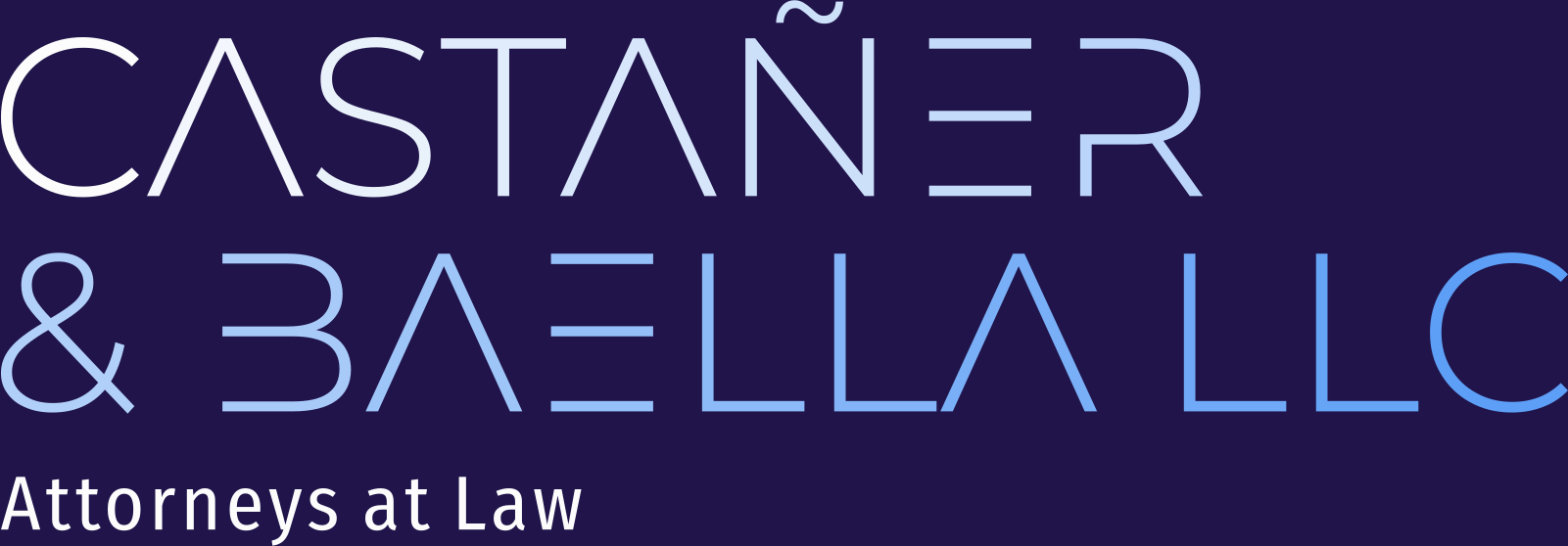Legal FAQ
Frequently Asked Questions about Personal Injury Law
Have questions about personal injury law? Find answers to commonly asked questions in our comprehensive FAQ section. Castañer & Baella LLC is here to provide clarity on legal matters, empowering you to make informed decisions.
How long do I have to file a personal injury claim?
- The statute of limitations to file a personal injury lawsuit is one (1) year from the day the person was injured or from the day the person becomes aware it was being injured. A person may be injured but not know who caused the injury, in that case, the statute of limitations starts to run the day when the injured party learns the identity of the person who caused the injury.
How much does it cost to hire a personal injury attorney?
- Castañer & Baella work based on contingency fee agreements, which means that attorney’s fees are contingent upon the successful outcome of the case and the client does not pay any fees until the Firm collects from the defendants on the client’s behalf.
How do I know if I have a case?
- You don’t have to navigate this decision on your own. Reach out to Castañer & Baella and arrange a free consultation to thoroughly discuss your circumstances. Our attorneys can guide you on potential defendants, anticipated recovery, considering the specifics of the accident and the laws applicable in Puerto Rico. In essence, in many scenarios, you may have a case if someone behaved negligently in the given circumstances, resulting in your injuries. Assessing this criterion is more intricate than it appears, underscoring the significance of seeking legal advice.
What do I do if an insurance adjuster calls me?
- It is advisable not to talk, email or agree to anything in writing with an insurance adjuster representing another party in the legal matter. Despite appearing friendly and understanding, their intention is likely to elicit statements that could minimize or negate the liability of their insured. Politely instruct the insurance adjuster to communicate with your attorney, should you have one, or with your insurance company if legal representation is not yet retained. This advice remains applicable if an attorney representing another party reaches out to you.
What damages are available in personal injury cases?
- The main category of damages is termed compensatory damages, which is further categorized into economic damages and non-economic damages. Economic damages are grounded in concrete, relatively objective expenses and losses, encompassing medical bills, lost income, property damage, and future treatment costs. On the other hand, non-economic damages are more subjective, addressing elements like pain and suffering, mental distress, and the deprivation of life’s pleasures. To be eligible for compensation, damages must be reasonably quantifiable rather than speculative. In cases where the defendant’s actions are exceptionally egregious, punitive damages may be sought in addition to compensatory damages. These punitive damages are intended to penalize the defendant and discourage such behavior, albeit they are seldom awarded.
How much is my personal injury case worth?
- The determination of compensation hinges on the particular details of your injuries and can only be established after a comprehensive examination of your case. For an initial estimate, you can seek input from our attorneys at Castañer & Baella. It’s essential to note, however, that attorneys are restricted from guaranteeing specific recovery amounts or predicting case outcomes. Any estimate provided is likely to be general and qualified. Another consideration is the actual amount you can receive, influenced by factors like the insurance coverage of responsible parties, their assets, and your own insurance coverage.
If you don’t find the answers you’re looking for, feel free to reach out to our legal team for personalized assistance. We’re here to help you understand your rights and options.





